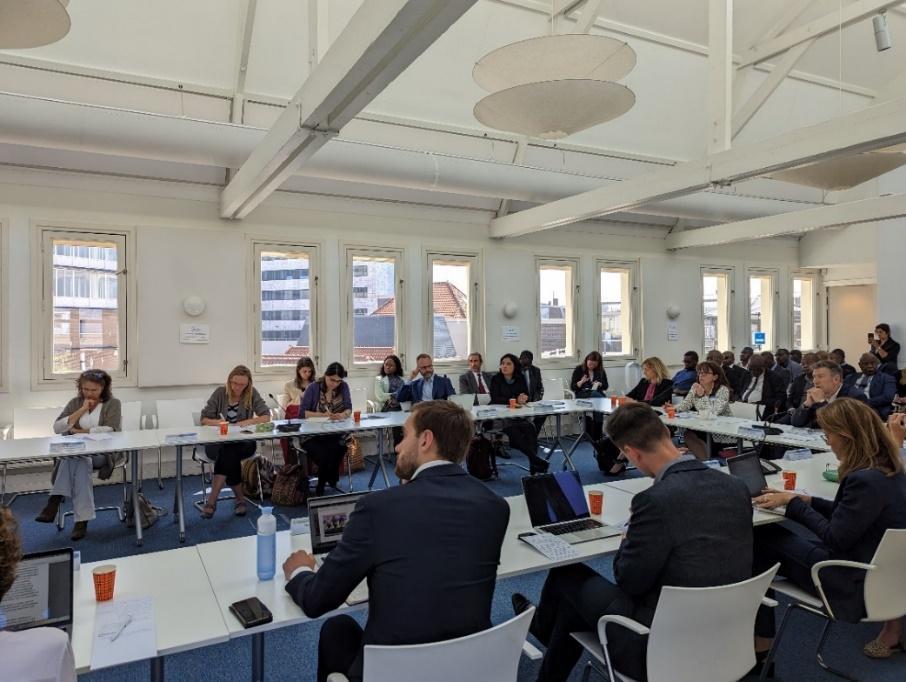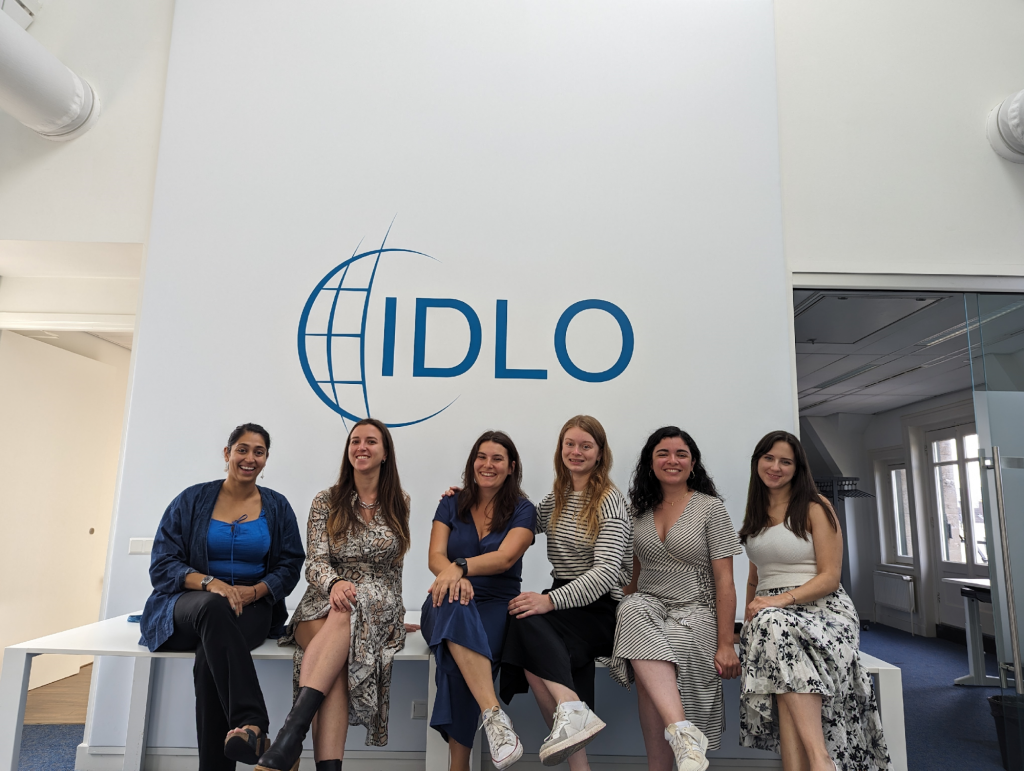Advocating for Justice and Sustainable Development
This summer, I had the incredible opportunity to work as a research intern in the Research and Learning Department at the International Development Law Organization (IDLO) at the Hague. The IDLO is the only global intergovernmental organization exclusively devoted to promoting the rule of law to advance peace and sustainable development. Their work centers around empowering governments and individuals to reform laws; strengthen institutions; and promote peace, justice, sustainable development, and economic opportunities in more than 90 countries worldwide.
My primary responsibilities during this internship revolved around supporting the production of two knowledge products slated for publication in 2023. These projects offered a deep dive into two interesting aspects of international development and human rights law: the transformation of the Kenyan judiciary and a policy brief advocating for a people-centered approach to pre-trial detention.
The Transformation of the Kenyan Judiciary
The country brief on the transformation of the Kenyan judiciary aimed to analyze the transformation in the Kenyan judiciary since the adoption of the 2010 Constitution. Further, it aimed to shed light on the IDLO’s work with the Kenyan judiciary, providing valuable insights for national and international policymakers and practitioners. My role involved extensive research, including writing a comprehensive 30-page memo exploring the intersection of justice, democracy, and stability, with a focus on the role of the judiciary in democratization and peace-building.
To compile the country brief, I synthesized various project documents and conducted interviews with key informants both within the IDLO’s Kenya country office and external experts within the Kenyan judiciary. Subsequently, I co-drafted the report and co-edited it based on feedback from various stakeholders, including my manager, director, the IDLO’s research gender team, and the Kenya country office. I also developed a communications package to facilitate the dissemination of the report, recognizing its potential to influence critical policy decisions.
A People-Centered Approach to Pre-Trial Detention
The policy brief advocating for a people-centered approach to pre-trial detention sought to identify legal and institutional policy changes within the formal justice sector that would reduce pre-trial detention while also exploring state and non-state based complementary interventions. The overarching goal was to promote a measurable and sustainable reduction in pre-trial detention over the long term.
During the summer, I conducted interviews with professionals who possessed extensive experience and expertise in pre-trial detention and conducted desk research on the topic. This research was instrumental in crafting the initial 60-page draft of the policy brief, which was enriched by feedback from within the organization. Additionally, I organized a consultation with experts, specifically focusing on the pre-trial detention of juveniles and young adults, to ensure that the final publication addressed this critical issue comprehensively.
Exploring Customary and Informal Justice
One of the most intriguing aspects of my internship was delving into the realm of customary and informal justice systems. I organized and facilitated a consultation involving 23 top experts in the field of customary and informal justice, with an audience of approximately 45 people, including a delegation of 20 African Supreme Court Justices.
My research, particularly in collaboration with the Kenyan judiciary, revealed an interesting perspective. Many experts within the Kenyan legal system emphasized the need to reframe the discourse surrounding customary and informal justice. For them, these systems were not “informal” but rather the original justice systems in Kenya. These systems have regained recognition as the main justice systems, as outlined in the 2010 Constitution. The terms “informal” or “alternative” justice systems were often viewed as a Western concept. Instead, these systems should be considered legitimate justice systems, working in tandem with the “formal” court system to provide diverse avenues for justice to citizens. This perspective highlights the evolving nature of terminology and its alignment with local contexts.
Personal Development and Networking
Beyond contributing to these impactful projects, my internship at the IDLO provided me with invaluable personal and professional growth. It allowed me to deepen my knowledge of international development, international human rights law, and the UN Sustainable Development Goals. I gained hands-on experience in research methodologies and technical writing. Further, I learned about the inner workings of international development programming, institutional learning, and influencing policy making.
Living in The Hague, a city known as the International City of Peace and Justice, afforded me the opportunity to connect with numerous legal experts in international human rights law. I attended events hosted by prominent organizations such as the International Criminal Court (ICC), and the United Nations Development Programme (UNDP), expanding my understanding of the field and building a robust professional network.
Conclusion
My internship at the IDLO was a transformative experience that deepened my understanding of international development law and policy. Working on impactful projects, participating in consultations with experts, and engaging with professionals in the field broadened my horizons and expanded my network.
Exploring the dynamics of customary and informal justice was particularly enlightening, showcasing the importance of cultural sensitivity and context in international development work. As I reflect on my time at the IDLO, I am grateful for the knowledge and experiences gained, and I look forward to continuing my journey in the field of international development and human rights law, advocating for justice, peace, and sustainable development.







